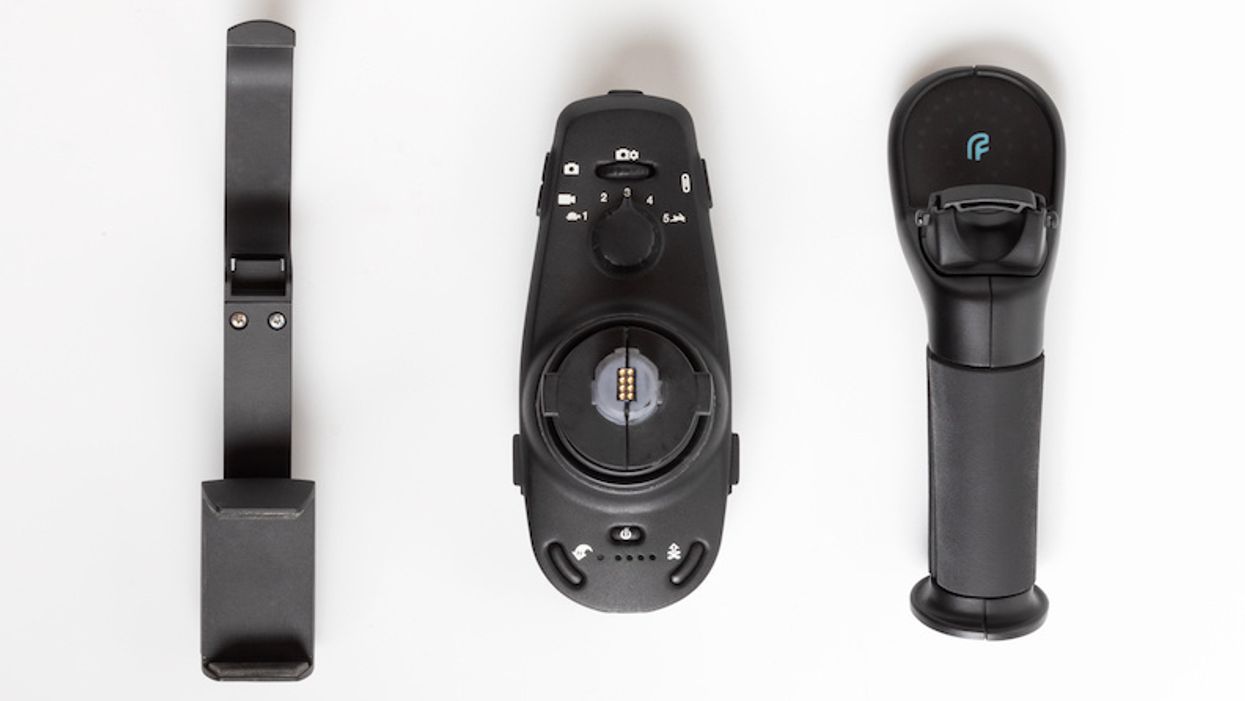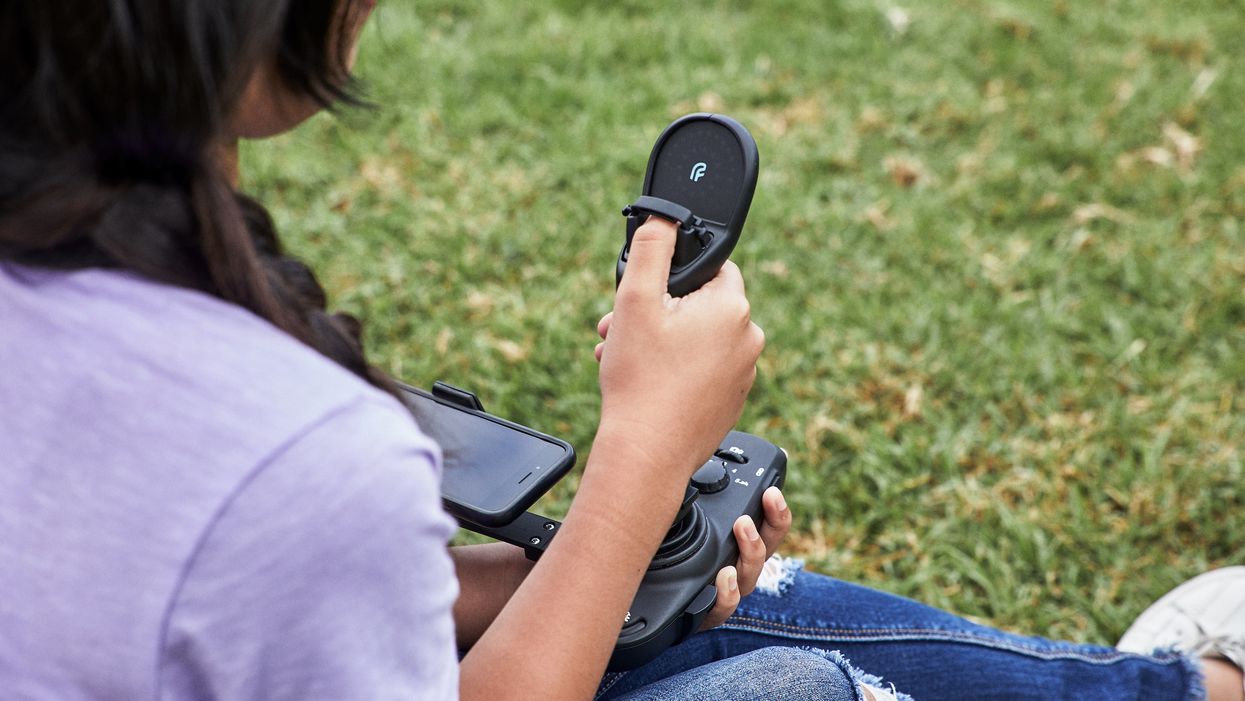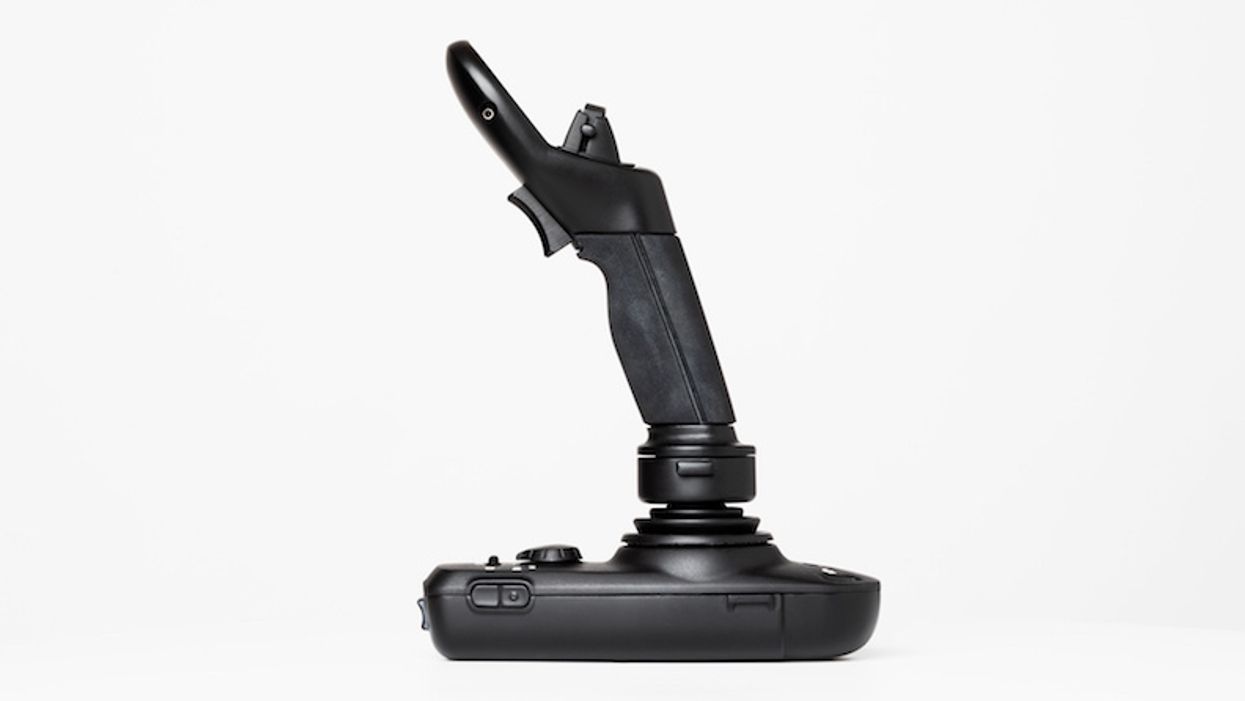Unmanned with one hand
Houston-based company's device is revolutionizing drone technology across industries
It's not enough that Scott Parazynski has spent 57 days, 15 hours and 34 minutes in space. Nor is the fact that he's trained as a trauma surgeon. Not even climbing Mount Everest as a team physician for the Discovery Channel could satisfy one of Earth's most talent-blessed residents. Now Parazynski is on course to change multiple industries with his latest invention.
Not surprisingly, the member of the US Astronaut Hall of Fame based his design on movement in space. He wanted to approximate the movement of simultaneously shifting from one place to another, but also changing the body's orientation. In zero gravity, it takes precision and planning, Parazynski says, to do that in the most efficient way possible.
As a member of the Houston Methodist Research Institute, his goal was to create a joystick-like device "that would revolutionize surgical robotics." That is still a target for the technology, but with his own Houston-based company, Fluidity Technologies, Parazynski is first releasing the device as a drone controller known as FT Aviator.
"Mostly because it's an enormously growing marketplace and the barriers are a lot less," he admits.
That's not to say Parazynski is anything less than a world-class expert on the subject of flight.
"I've flown aircraft and spacecraft," says Parazynski. "But none allowed for the precision of motion I was looking for. None prevented unintended motion."
Lifelong passion
He himself has had toy drones for as long as they've been available and purchased his first "serious drones" three or four years ago, around the same time he conceived of FT Aviator.
When he started to research other drone controllers, he realized that most current models aren't too different from relics from the 1930s on display at the Smithsonian.
"There has been zero innovation in flight control," he says.
As opposed to the two-handed controllers that recall 1990s video game systems, FT Aviator only requires the attention of the pilot's dominant hand. This is especially useful to those using drone cameras. Instead of complex machinations that often require multiple launches, the user can simply make adjustments to the camera with his or her other hand.
"It does this incredibly intuitive motion with a drone or computer game or virtual augmented reality," Parazynski says, listing other potential uses for the technology.
It's FT Aviator's natural movement that will one day make Fluidity's core technology a groundbreaker in surgical robotics. Since the da Vinci surgical robot's 2000 FDA approval, the machine has created controversy. In the hands of a well-trained surgeon, it substantially reduces healing time. But there is no approval process for doctors to use it, so disasters in the hands of untrained practitioners have made the news.
By using the simpler mechanism of Parazynski's technology, the learning curve for robotic surgery is far less steep.
"What we want to do is make it so someone with less training can enjoy the same outcomes," Parazynski explains.
Cross-industry innovation
Ideally, one day a doctor in Houston will be able to operate remotely on a patient across the globe. Thanks to the device's tactile feedback, it's a realistic goal.
But Parazynski foresees "dozens of applications" for his invention, which will begin shipping in February. Sandia National Laboratories in New Mexico has already engaged Fluidity, just one on a list of about 50 businesses and government institutions interested to work with the company when it comes onto the marketplace.
"But any good startup will tell you it's about focus," the entrepreneur admits.
That means that for now, he and his team have his eye specifically on controlling drones. Within two weeks of launching a Kickstarter this fall for the business, Fluidity doubled its goal. The FT Aviator has been named a 2019 Innovation Award Honoree at the 2019 Consumer Electronics Show. But Parazynski says he owes much of his success to Houston, his home of a quarter century.
Fluidity is based out of a WeWork coworking space.
"I think it's a really exciting place to have a tech startup" Parazynski says. "It's not yet to the scale of Silicon Valley or even Austin but certainly the innovation that's taking place here warrants a major tech hub."
And thanks to Parazynski's work, that day may be coming sooner rather than later.



